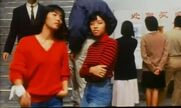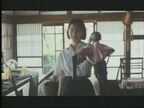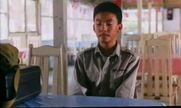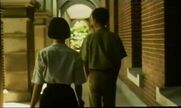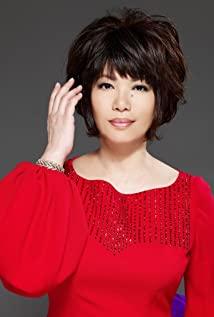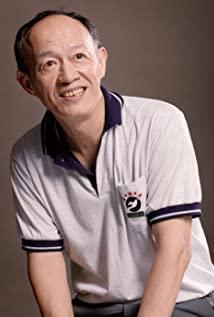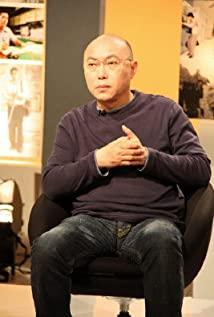In the short commentary and discussion area of "Guling Street Teenage Murder Case", there is a very popular argument: the idealism represented by Xiao Sier is beautiful, but it is oppressed by this real world. Although the film ends with Xiao Si'er (idealism) stabbing Xiao Ming (the real world), the disillusionment of Xiao Si'er's cognition of the world also makes all audiences feel sad and even empathize with him, while Xiao Ming is easier hated by the audience.
But is this movie really praising ideals and belittling reality?
It occurred to me that Professor Ou Lijuan of National Taiwan University's opinion on "A Dream of Red Mansions" was different from most of the Red Mansions scholars or mainstream interpretations I had read. The mainstream Hongxue interpretation holds that Cao Xueqin praised Jia Baoyu for "revolting against feudal ethics, despising the economics of the official career", and despising a set of feudal traditions represented by Jia Zheng of "reading the Four Books and Five Classics to become an official and a nobleman". And Professor Ou Lijuan believes that in fact, Cao Xueqin's original intention is the real last forty times or the ending should be Baoyu's bleak ending in the big family's "white and clean", regretting that he did not listen to his father Jia Zheng's encouragement to learn some A career in the economy, otherwise it might be able to remedy the misfortune of the family, or at least protect some sisters in the Grand View Garden, such as Shi Xiangyun. This point of view is not particularly easy to accept at first glance, but it is very convincing when you think about it carefully. Therefore, in Professor Ou Lijuan's system, we can make three-level answers to "Dream of Red Mansions":
On the first floor, you can see that the mountains are mountains. On the surface, the ending of "Dream of Red Mansions" is because Jia Baoyu, a playboy who is ignorant and does not care about the fate of the family, only knows that he is happily hanging out with his daughters and having fun, causing (or taking a considerable part of the responsibility) the Jia family to lose and not at all. There is no wiggle room.
On the second floor, the mountain is not a mountain. This is also the view of most people. Baoyu is regarded as the embodiment of romanticism and idealism. From beginning to end, it was not accommodated by feudal ethics and the real world, and eventually perished along with the declining family. Note that this level is entirely sympathetic and sympathetic to Baoyu and its symbols.
On the third floor, look at the mountain or the mountain. This is also the level interpreted by Professor Ou Lijuan, that is, the romanticism and idealism represented by Jia Baoyu need to pay the price for his willful refusal to accept reality, and this is different from the second level, which is not worthy of praise. Maybe there are Sympathy, but more critical. In the book, Jia Baoyu's romantic, ideal, and unfettered must actually rely on the strong strength of the big family in the early stage, other male family members (such as Jia Zheng) in reality doing the career economy that he despised, and the female family. Members dote on his infinite tolerance. In other words, if no one asks about career economics that he despises, what qualifications does Jia Baoyu have to manage his romantic ideals and enjoy the future? Therefore, at this level, it is good to have the original intention of romantic idealism, but it is also necessary to recognize the inevitability of realism and the necessity to face it, otherwise the so-called romantic ideal will be difficult to survive.
Speaking of this film, it also has three layers.
On the first floor, you can see that the mountains are mountains. The film's ending is unmistakably tragic, both realistically and symbolically. On the surface, a teenager paranoid wants to change his girlfriend/real world, but he still can't understand the logic of how the world works, and he can't reach a reconciliation, and finally kills his girlfriend. Perhaps the revelation of this layer is that you should not be too stubborn in your own principles, otherwise you will only hurt others and destroy yourself.
On the second floor, the mountain is not a mountain. Many people can see this layer, which is also the layer of symbolism, that is, the idealism represented by Xiao Sier is constantly being hurt by the cold reality, because it is impossible to be as "shameless" as Haney said and accept the reality. Conspire with it, and finally go crazy. This layer has great sympathy for the character Xiao Sier because it can resonate, and some comments have a great prejudice against the reality represented by Xiao Ming. In fact, this is very unfair. Maybe you have not seen the third layer's sake.
On the third floor, look at the mountain or the mountain. In other words, the famous famous saying that has been rotten by marketing accounts - "There is only one kind of heroism in the world, that is, when you recognize the essence of life, you still love life" (Romain Rolland). I think this layer must be recognized in order to appreciate this film. The destruction of Xiao Si'er is a pity, and it is completely normal to cause understanding and resonance, but this does not mean that Xiao Ming and the real world she symbolizes are absolutely dirty or as degrading as Xiao Si said in the movie. What I look down on, also Xiao Si and his symbolism are by no means purely beautiful and great heroism, on the contrary, they can also be cowardly and despicable. In fact, Xiao Ming is not only a symbol of the real world, but also a scapegoat; after all, the teenager really can't change the real world, the world is illusory, but he can really stab his girlfriend's body and pick one who can really bully. Xiao Ming, like Xiao Sier, is a victim of this cruel world: a frail and sickly mother, the pressure of living without a place to live, medical expenses that are difficult to afford with her mother's meager savings, and all kinds of men's treatment of her. Harassment and pursuit (not sincere)... All these are on the shoulders of a teenage girl, and how many people can see her helplessness? Her smoothness and flattery are all to make life less difficult, and is this some heinous crime? As she said to Xiao Si'er, she doesn't need him to change her, she can't be changed, and no one can protect her (especially after Hani's death), she can only rely on her own means to stay in the cracks Just survive. Those boys who are courteous to her, except for Xiao Si'er, probably didn't treat her sincerely (refer to Xiaoma), since everyone is acting on the scene and getting what they need, why are they demanding this girl not to allow her to be sophisticated and tactful to be careful for survival? What about the machine?
Speaking of Xiao Si'er, his so-called "romanticism" is often obsessed with meaningless things or people, such as obsessed with changing Xiao Ming. If you look down on this girl, then you can find another girl. , why end up hurting others and hurting yourself? Not taking a step back when it is time to take a step back is not true heroism, but paranoia. My father is also a good reference, always emphasizing principles on things that are meaningless, refusing to make appropriate compromises with reality, and can only make it worse. I reiterate that "Looking at the mountain or the mountain" in the third layer needs to be different from the first layer. Romanticism and idealism need to be adhered to, but this does not mean indulging in one's own logic and execution. If the fourth child can realize this, maybe the end result is to go to church to meet the pastor, then study hard, and eventually his name will appear on the radio list - he can still be an ideal teenager, his Goodness is better preserved by reconciliation with reality.
View more about A Brighter Summer Day reviews



